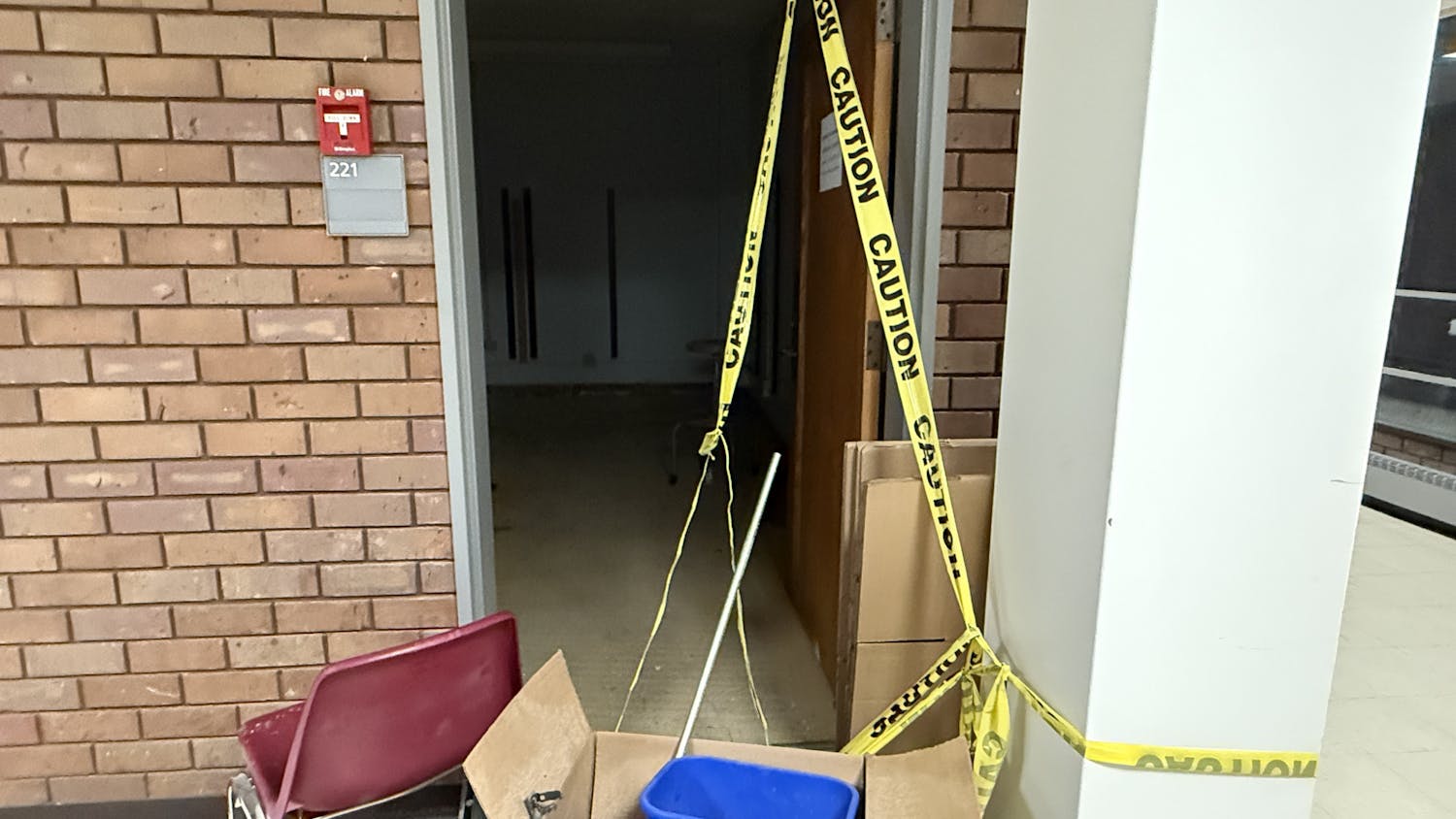Lunch: $8.00
Gas: $50.00
Junot Diaz’s new book: $14.99
Bank account: Empty
With the fall semester underway, it’s easy for students to get caught with an overwhelming list of personal expenses. The feeling of swiping a piece of plastic in exchange for “stuff you need” can be exhilarating, until one day, your card is declined.
Being a frequent player of “how much money is in my bank account?” is dangerous; but with some creativity, you can avoid losing that game.
Got an uh-oh? Stick a pin in it
College not only tests your academic ability, but also your clothing. Vicious washing machines and unpredictable weather can lead to the demise of many clothing items, leaving students heartbroken and defeated when they have to replace their favorite pair of jeans.
Sabrina Swenson, a sophomore biomedical science major, found herself in an outfit crunch when she didn’t have anything new to wear. She didn’t have the option to buy a new shirt, so she used bobby pins to put her shirt together, transforming a tank top to a crop top.
She said the idea came to her when she saw her cousin’s roommate – at Fashion Institute and Technology – pin back her shirt. Swenson has been doing it ever since.
“I haven’t thrown away a piece of clothing since my sophomore year in high school,” Swenson said. “So a lot of [my wardrobe] is adding one or two new pieces and mixing and matching.”
No such thing as a wasted meal
Students who depend on the university for food know all too well what it’s like to want meals when they aren’t accepted and food establishments are closed.
Put your meals to good use during the week by stocking up on foods that will last a longer than a day. If you use one meal to buy two large soups, you’ll have lunch and dinner for the price of one. This saves meals for late night snacking or accidental meal mismanagement.
It also means eating that leftover food in your mini-fridge on a Saturday afternoon instead of waiting in line for Moe’s when you’d much rather be in bed.
And if the problem is having too many meals and not a large enough appetite, put your money to good use by stocking up on portable food items. Alyssa Weglarz, a freshman undecided major, buys extra yogurts and fruit cups on Fridays before her meals expire.
Other students prefer to spend their extra meals on friends in need. In addition to buying juice and fruit to get rid of meals, Ivory Sligh, a junior international studies major, spends her meals on one of her roommates who has only 20 meals for the semester.
Your meals are already paid for – so why not get your money’s worth?
Bartering makes a comeback
At Bennington College in Vermont, students who are dorming host annual clothing swaps. This gives everyone a chance to get new clothes in exchange for the items they never wear.
The same concept works for food.
Garret Jermyn, a sophomore pharmacology and toxicology major, said he and his friends would often trade a pack of Ramen for a bottle of water. According to him, the going price for a Gatorade is two Ramen packets.
“Really, I can trade Ramen for anything,” he said.
At-home library for free
Textbooks can get expensive.
Services like Amazon Prime make it cheaper for students to buy books and quickly receive them, but a free six month service can only go so far before the website charges a $60 membership for the year, which defeats the purpose of buying a half-priced book.
If you prefer computer access to your textbooks, then the Internet Archive is for you. It has 100 million books available electronically to the public for free – no subscription needed. Students can now read and access books from cover to cover on their computer without opening their wallets.
Speaking of wallets …
Why use a wallet when your smartphone has a case? The basic necessities a college student needs are ID cards, cash, debit cards and a cellphone, all of which are small, flat and can be placed in between your phone and its case.
Limiting the amount of storage space means you can only bring the exact amount of money for what you need and nothing more. Just remember, your phone has everything now – literally.
Money-saving opportunities are all over campus; it just takes a little creative thinking to find them.
email: news@ubspectrum.com




